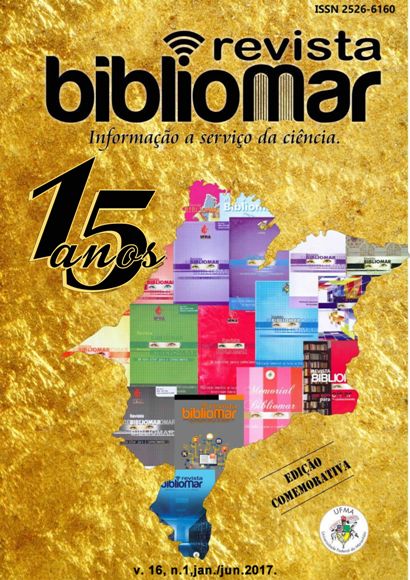COLÉGIO SANTA TERESA: a criação do curso magistério e o compromisso de formar bons professores
Mots-clés :
Colégio Santa Teresa, Educação comunitária, Formação de professoresRésumé
Este artigo pretende discutir sobre a importância do projeto educacional comunitário que se concretizou no pequeno povoado maranhense de Santa Teresa do Paruá, hoje, Presidente Médici, destacando, sobretudo, a criação do curso magistério e a ênfase dada à qualidade na formação de professores. O tema está relacionado com a pesquisa que desenvolvi ao longo do programa de pós-graduação do Mestrado em Educação pela Universidade Metodista de São Paulo (PPGE/UMESP), cuja finalidade foi a de reavivar as memórias dos moradores, a fim de que eles pudessem narrar e refletir como essa rica experiência educacional materializada com a construção coletiva do Colégio Santa Teresa, em 1978, influenciou suas vidas. A presença dos Irmãos Lassalistas em Presidente Médici, na década de 1980, assinalou a criação de um núcleo educacional que alterou significativamente a vida da respectiva comunidade, tornando-se desde então, uma referência educacional na formação de professores. Assim, julgo importante investigar e refletir sobre a participação dos mesmos na construção desse processo educacional. Nesta tarefa de reconstrução histórica, conto com o afloramento das memórias de pessoas que receberam esse atendimento educacional e da revisão de literatura sobre o tema. A riqueza dos depoimentos permitiu constatar que a oferta de uma educação direcionada ao desenvolvimento pleno do cidadão, se concretizou de fato, pois, durante quase toda a sua trajetória histórica, a instituição conseguiu manter a autonomia, sem estabelecer vínculos efetivos com o poder público e os programas oficiais do governo, e desta forma, pôde adotar uma filosofia pedagógica própria.
Palavras-chave: Colégio Santa Teresa. Educação comunitária. Formação de professores.
Abstract
This article intends to discuss the importance of the community educational project that took place in the small town of Santa Teresa do Paruá, today President Medici, highlighting, above all, the creation of the teaching course and the emphasis on quality in teacher training. The theme is related to the research that I developed during the postgraduate program of the Master in Education by the Methodist University of São Paulo (PPGE / UMESP), whose purpose was to revive the residents' memories, so that they could Narrating and reflecting how this rich educational experience materialized with the collective construction of Santa Teresa College in 1978 influenced their lives. The presence of the Lasallian Brothers in Presidente Médici in the 1980s signaled the creation of an educational nucleus that significantly altered the life of the respective community, and has since become an educational reference in the formation of teachers. Therefore, I think it is important to investigate and reflect on their participation in the construction of this educational process. In this task of historical reconstruction, I count on the emergence of the memories of people who received this educational service and the literature review on the subject. The richness of the testimonies made it possible to verify that the provision of an education aimed at the full development of the citizen has indeed materialized, since, for most of its historical trajectory, the institution was able to maintain its autonomy, without establishing effective ties with the public power and The official government programs, and in this way, was able to adopt a pedagogical philosophy of its own.
Keywords: Santa Teresa College. Community education. Teacher training.
Téléchargements
Téléchargements
Publié-e
Comment citer
Numéro
Rubrique
Licence
DECLARAÇÃO DE RESPONSABILIDADE
Senhores editores da Revista Bibliomar,
Declaro que submeti o artigo __________________________________ para avaliação e parecer, e que estou ciente das condições para publicação nesta revista, entre as quais destaco:
a) não há omissão de ligações ou acordo de financiamento entre aqueles que venham a se interessar pela publicação deste trabalho;
b) o trabalho é original e inédito e que não foi enviado nenhum texto similar a este, sob minha autoria, a outro periódico, durante o período em que este texto estiver sob a avaliação da Revista Bibliomar;
c) este trabalho é fruto de pesquisas por mim realizadas e não há omissão de nenhum autor por mim citado.
Respeitosamente,
Loca/data____________, ______/_____/_____
Assinatura do autor(es)
DIREITOS DE PUBLICAÇÃO
Qualquer usuário poderá ter direito de:
- Compartilhar — copiar, baixar, imprimir ou redistribuir o material em qualquer suporte ou formato
- Adaptar — remixar, transformar, e criar a partir do material para qualquer fim, mesmo que comercial.
De acordo com os seguintes termos:
- Atribuição — Você deve dar o crédito apropriado, prover um link para a licença e indicar se mudanças foram feitas. Você deve fazê-lo em qualquer circunstância razoável, mas de maneira alguma que sugira ao licenciante a apoiar você ou o seu uso.
- Sem restrições adicionais — Você não pode aplicar termos jurídicos ou medidas de caráter tecnológico que restrinjam legalmente outros de fazerem algo que a licença permita.







